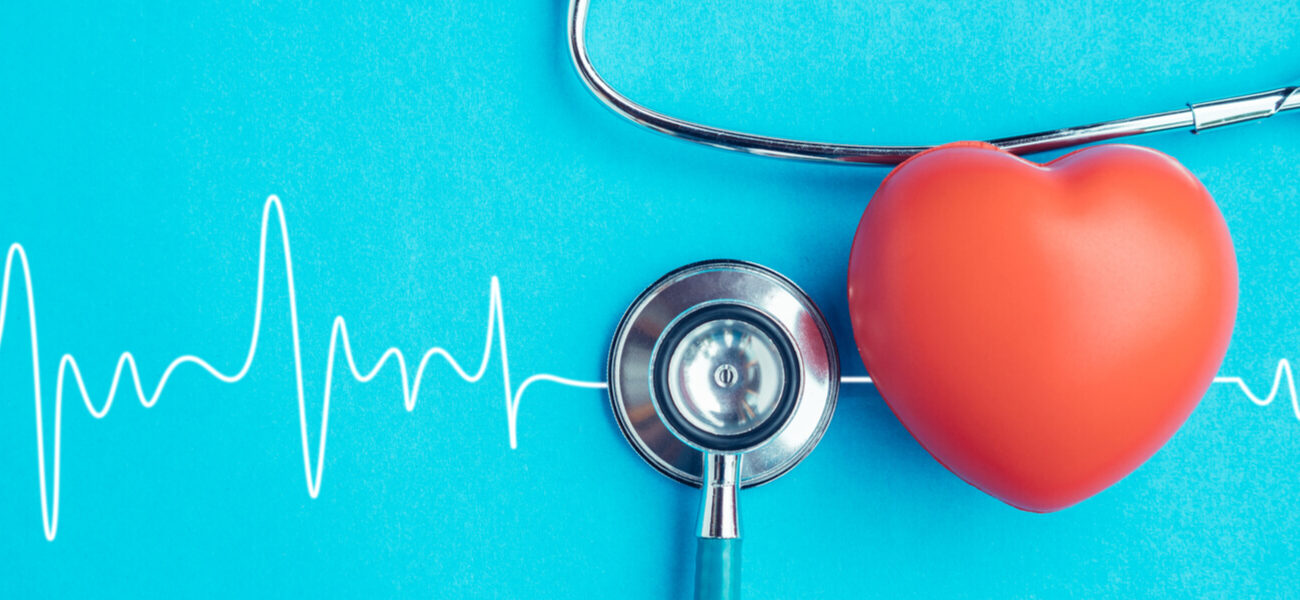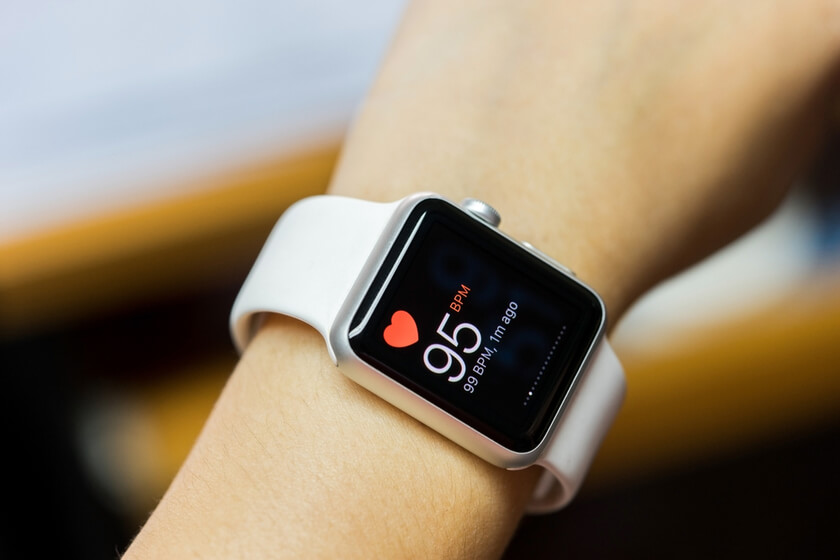Why Is My Heart Rate Higher on the Keto Diet?

Ketogenic diets are followed by those who want to experience ketosis.
The desire to reach ketosis usually stems from wanting to lose weight and switch to a healthier lifestyle that is considered to lower the risk of heart disease and other health conditions.
The keto diet requires participants to monitor what they eat through a high-fat, low-carb diet. The significant restriction of carbs forces the body into a state of ketosis.
Once in ketosis, the human body burns fat for fuel instead of the regular sugar from carbs. The outcome is the loss of excess weight, increased energy, and improved mental clarity.
However, many people report some negative effects, most notably in the first week of transition.
Symptoms including bad breath, muscle cramps (mostly leg cramps), and brain fog are widely reported. Another common side effect, and perhaps the most concerning, is heart palpitations and increased heart rate.
While changes to your heart rate are alarming at first, it’s normal to experience increased heart rate during the keto diet, particularly in the first few weeks.
Fortunately, there are several reasons to explain why this happens.
We discuss the keto diet in detail to determine why these changes occur during the adaptation phase to put your mind at ease.
Increased Heart Rate on Keto
Firstly, let’s outline the symptoms of a slightly higher heart rate.
During the keto diet, you can spot changes to your heart rate by the following:
- A racing heart, otherwise called heart palpitations
- Chest pain
- Brain fog
- Shortness of breath
- Dizziness and lightheadedness
- Muscle cramps
- Dehydration
It’s common for keto dieters to experience the above effects. But why does it happen? Keep reading.
Can keto diet cause chest pain?
Yes, it can. Chest pain is another sign that you are experiencing heart palpitations.
This can be linked to dehydration and the loss of salts and other electrolytes. If the pain doesn’t go away consult with your doctor as it could be a sign of a serious health condition.
What Causes a Higher Heart Rate on Keto?
A higher heart rate on keto generally comes down to dehydration, not enough salt, and the loss of electrolytes.
With nearly no carbs and a high-fat diet, the additional consumption of fats requires more water to process through the digestive system. The water within your body is used up quicker than usual.
The rapid drop of fluids in the bloodstream causes a decreased volume of water to circulate blood. The heart must work harder to carry blood around the body and manage your blood pressure.

Advertisement
The result is a faster and abnormal heart rate.
With ketogenic diets, you can expect to experience the following symptoms.
Pounding heart
A pounding heart is a sign of heart palpitations or cardiac arrhythmia. You can physically feel your heart pounding or fluttering, making you feel uncomfortable and anxious.
Stress, anxiety, intense exercise, caffeine, and certain medications are triggers of heart palpitations in ordinary life.
During your keto transition, a racing heart is linked to one of many symptoms of keto flu.
It’s usually due to dehydration and a low salt intake that forces your heart to pump faster to carry blood around your body.

The good news is, keto-related heart rate changes are usually short-term.
It’s important to note that heart palpitations can result from an underlying medical condition, especially if you have cardiovascular risk factors, including diabetes, high cholesterol, and high blood pressure.
While it’s considered normal on the keto diet, you may want to speak to your doctor if the symptoms do not disappear.
Fatigue
Fatigue occurs in most people in the initial stages of ketogenic diets, even fit and healthy adults.
Usually, carbohydrates give the body an instant hit of energy. With a drastically reduced carb intake, your body doesn’t have the fuel from glucose to provide energy as normal.
The transition can leave you feeling weak and excessively tired as it switches to burning fat instead. There may be an insufficient amount of fuel converted from fat, leaving you short on energy.

Keto fatigue can also result from irregular eating patterns. If you are using intermittent fasting as part of your keto diet, you starve yourself of meals during certain day hours. It’s perfectly natural to feel exhausted from the sudden changes.
Fatigue is not only physical either. Brain fog can occur from mental fatigue as your brain misses out on glucose, too.
Dizziness
Dizzy spells are another common side effect of keto.
A low carb intake can cause low blood sugar levels and electrolyte imbalances, most notably sodium.
As well as dizziness, you may feel nauseous and lightheaded.
Generally, dizziness is alleviated as your body adjusts to burning ketones instead of glucose.
Shortness of breath
Can keto cause shortness of breath? Yes!
Shortness of breath is a scary experience. It can bring tightness in the chest, trouble breathing, and air hunger.
It is another sign that can be associated with an increased heart rate.
Dehydration
An almost immediate effect of the ketogenic lifestyle is dehydration.
Some people feel thirstier than average as the body loses more water. When ketone levels heighten, complications of an electrolyte imbalance can cause dehydration.
When there are carbs in the body, they are stored as glycogen. Without carbohydrate intake, your body uses glycogen stores until the levels deplete.
You will find an increasing frequency to urinate during the keto diet or any low-carb diet.
The decrease in water is often the initial sign of losing weight in the first few days. But in fact, what you are losing is water weight.
Dehydration can be dangerous if the lost fluids are not replaced. It can lead to other medical conditions like urinary problems and kidney stones.
The experience of all or most of the above side effects is collectively referred to as keto flu.
Keto flu essentially mimics the typical flu symptoms but is only temporary in the early weeks of ketosis transition.
Each is a common adverse effect of ketosis and contributes to your slightly higher heart rate.

A ketogenic diet app designed to make keto easy. From the start.
- Personalized meal plans & workouts
- 10,000 keto recipes + vegetarian-friendly recipe database
- Customizable grocery list
- Calorie tracker
- Keto education and overviews of current trends
How to Avoid a Higher Heart Rate on Keto
While the negative effects are not ideal, they can be treated and avoided.
To give yourself the best chance at facilitating ketosis and reaping the benefits, use our following tips.
#1 Drink lots of water
The most reliable solution to cure the unwanted impact of a higher heart rate is staying hydrated.
Dehydration leads to all kinds of problems.
If you drink plenty of water, you should keep your body functioning properly and be able to power through with your keto diet.

#2 Higher carbohydrate intake
A higher-carb diet sounds like the opposite of keto.
However, your higher heart rate could be a reaction to reducing your carb intake too much.
Ketogenic diets suggest a daily calorie intake from 70–80% fat, 10–20% protein, and 5–10% carbohydrate.

It would be best if you didn’t cut out carbs altogether.
Try to avoid the lower levels of carbs and find an appropriate balance that will benefit you without messing up your ketosis efforts.
#3 Be patient
Patience is often crucial with any new dietary changes.
Your body can’t adapt overnight and requires a reasonable amount of time to adjust.
For most people, a higher heart rate is only short-term. As a widespread side effect of keto flu symptoms, the symptom can go away within a day or two.
It makes sense that the significant transition produces a reaction from your heart as the body begins to function slightly differently.
Your body will soon manage ketones like a pro with a bit of patience. But if heart symptoms persist or worsen, consult your doctor.
A Word From RD
A higher heart rate is no doubt concerning.
However, if you are actively following a very low-carb diet like the ketogenic diet, an increased heart rate can be expected.
Keto flu symptoms, including a pounding heart, fatigue, dizziness, and dehydration, are widely discussed within the keto community.
As your body adjusts to the demands of a new diet, common signs of ketosis appear. In most cases, the adverse effects are temporary, subsiding after one or two weeks. Unfortunately, it disrupts the plan, leaving many people to quit entirely.
In making yourself aware of the potential effects of a ketogenic diet, you can accept them without worrying too much. And as suggested in this article, there are several ways to avoid or alleviate a higher heart rate.
Of course, you should always take heart palpitations seriously if they do not subside or if you are worried. If you have any doubts, consult your doctor before and during a keto plan.
Conclusion
A higher heart rate is normal during the first stages of ketosis. Most symptoms are triggered by your body’s response to a loss of water and salt content as you eat more fats and proteins.
Stay hydrated, eat whole foods, and refrain from intense exercise if you feel dizzy, have shortness of breath, or have chest pain.
Heart palpitations are an uncomfortable experience for anybody. If they continue to recur or you are worried about your heart health, speak to your health professional to rule out other heart conditions.







Comments (0)